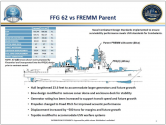In fairness, combat roles do require someone to be able to withstand fairly harsh conditions. While I wouldn't word it the way that Heliox did nor place as much emphasis on that kind of mindset, recruits should be able to tolerate a large amount of hardship because fighting is dirty and brutal.
Yes, combat roles require people who can withstand harsh conditions. But we are talking more than just average, GI combat roles.
All fighter pilot programs include at a very early stage a series of psych profile evaluations. A friend of mine actually failed that and was diverted to multi-engine training (transport) instead. To be entrusted with a jet that cost $100m+ and a training program that also runs into the millions, the military is going to be looking for people with absolute belief in themselves who will go all out to win over the enemy. These people won't be and shouldn't be quitting over a stiff neck.
To draw a parallel, take a look at F1 drivers. Again, pilots entrusted to be the pointy end of a $300m+ racing program. Lateral G loads amplified by the helmet weight on the neck is a big issue. But the mindset that predicates world champions means that these drivers do not complain - they just quietly go about strengthen and conditioning their neck muscles in the gym.
That said, I would chalk US recruitment troubles more to the fact that it wasted lives in middle eastern wars with nothing to show for it. Dying/getting maimed for a meaningless cause doesn't exactly stoke patriotic sentiment.
No disagreement here but it is one of many


